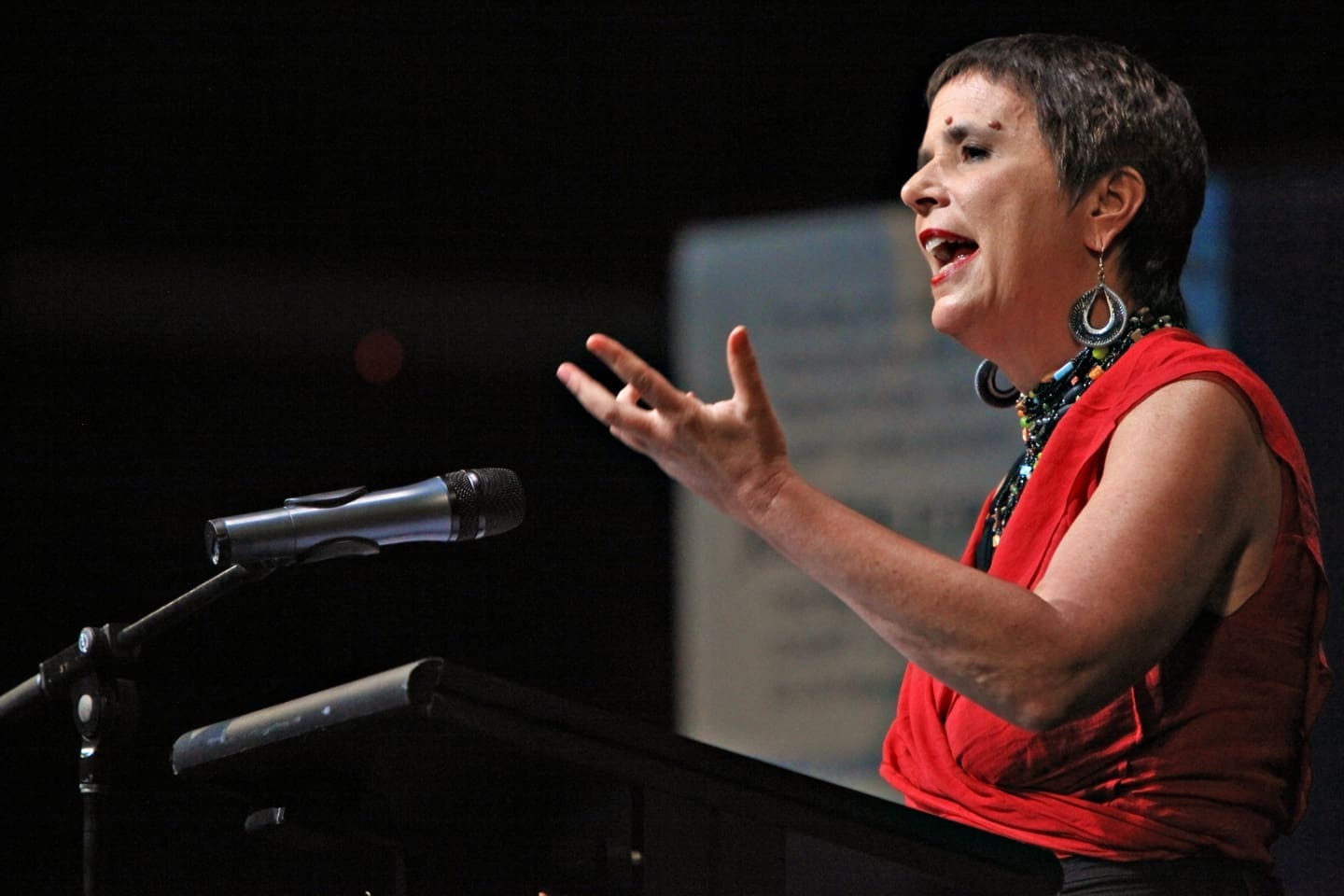Eve Ensler Lecture

About
Award-winning American playwright, performer, feminist and human rights activist Eve Ensler, visited UNSW to attend the International Criminal Court Conference and to give the Australian Human Rights Centre (AHRCentre) Annual Public Lecture. The Nelson Meers Foundation is privileged to have supported Ensler’s visit to Australia.
Ensler’s remarkable performance lecture, “Until the Violence Stops”, was held on Sunday 12 February 2012 at the Sydney Theatre. Proceeds from the lecture went towards supporting the work of the Australian Human Rights Centre.
Ensler’s ability to utilise the arts to communicate broadly on significant social issues such as human rights and violence against women is consistent with our own belief in the potency of the arts in this regard.
https://thebox.unsw.edu.au/mp3/until-the-violence-stops